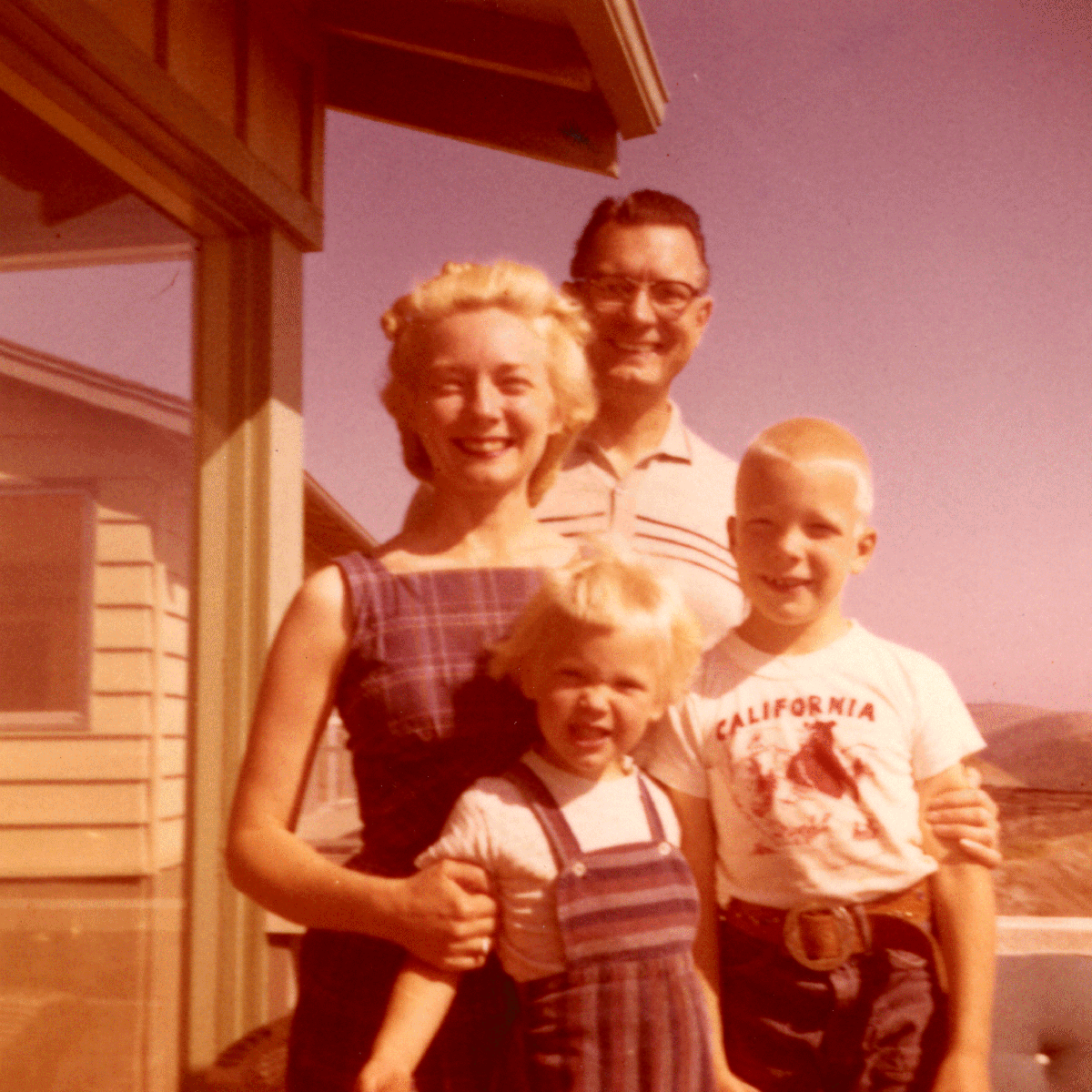
Family: photographer unknown, c. 1955 (Ben Evans Recreation Program Collection, Seattle Municipal Archives)
They fuck you up, your mum and dad.
They may not mean to, but they do.
They fill you with the faults they had
And add some extra, just for you.
But they were fucked up in their turn
By fools in old-style hats and coats,
Who half the time were soppy-stern
And half at one another’s throats.
Man hands on misery to man.
It deepens like a coastal shelf.
Get out as early as you can,
And don’t have any kids yourself.

Trinity Street, Coventry: photo by allhails, c. 1949-50

At Bablake School, Coventry: photo by allhails, 24 March 1954

Sports Day prizes, Bablake School, Coventry, Although I secretly photographed most of the masters at Bablake, I think this is the only one I took of the Headmaster, Eric Seaborne (in the hat). He was a tyrant, feared by (almost) all, and there is no doubt that he would have confiscated my camera if I had been caught. As an example of the way he ruled the school, anyone found uttering a single word during morning assembly had a mandatory caning: photo by allhails, 27 May 1954
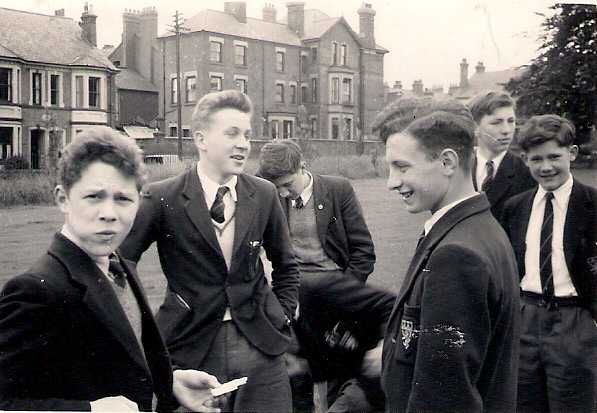
At break time, Bablake School, Coventry: photo by allhails, 25 June 1954
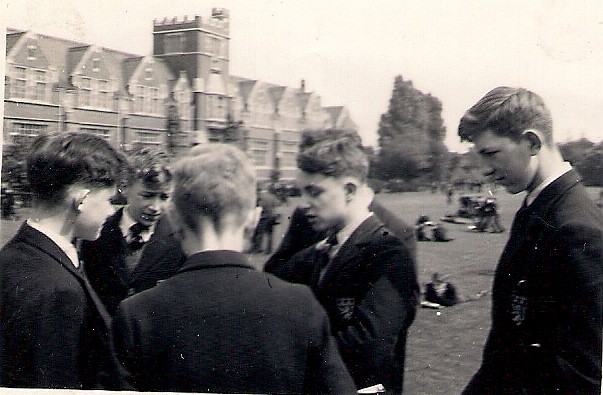
At Bablake School, Coventry. Soon after this photo was taken Smith (second from left) shot himself dead after an argument with his parents: photo by allhails, 27 May 1954
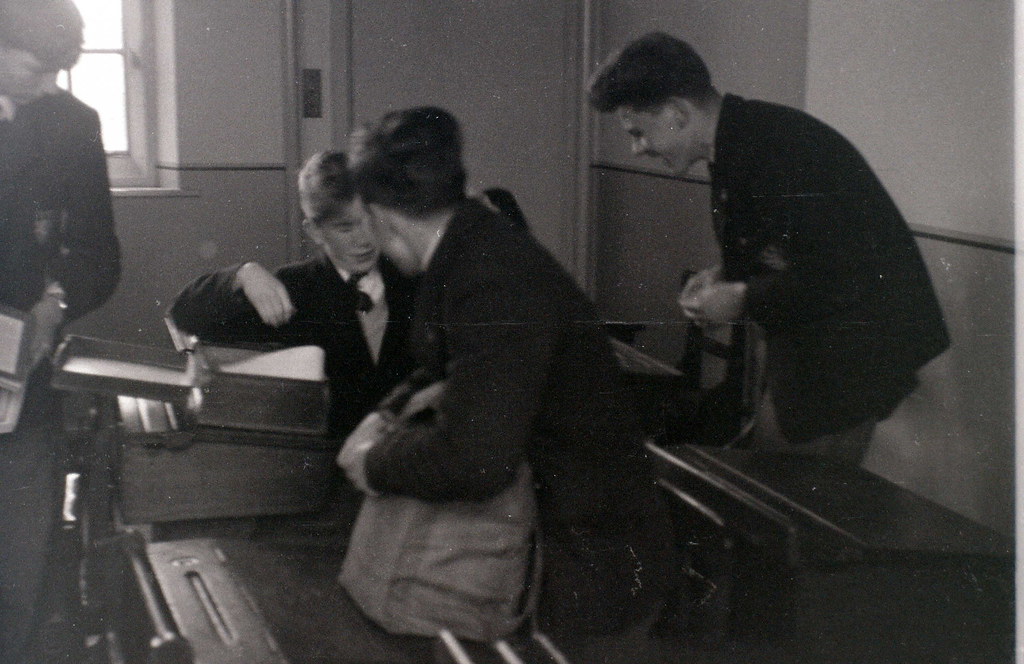
In Room 34, Bablake School, Coventry: photo by allhails, 17 December 1954
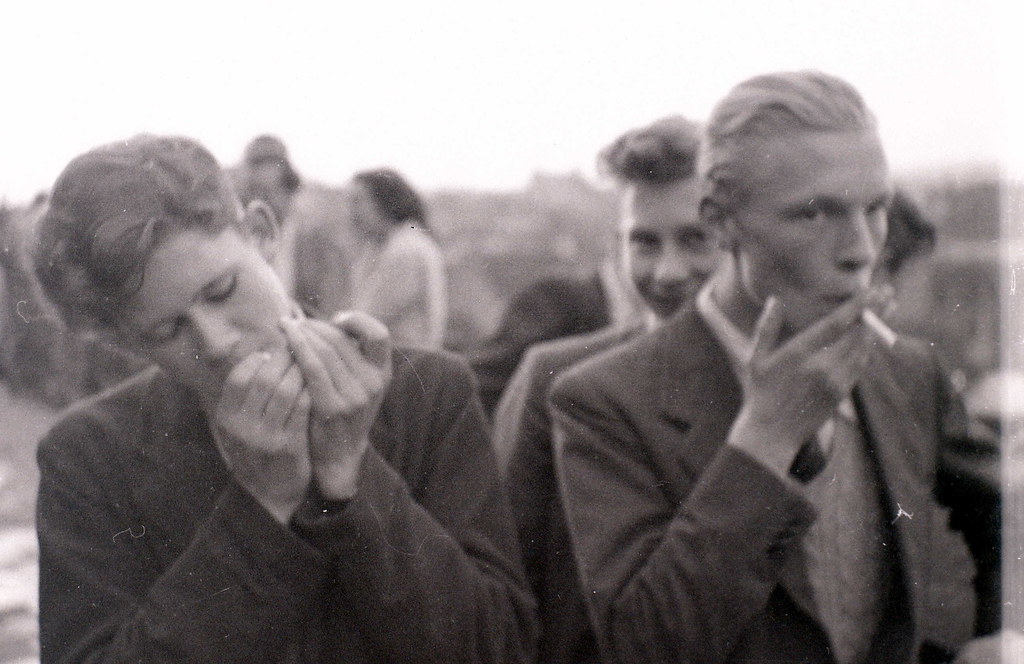
Bablake School, Coventry: A trip to Stratford. A strict moral code was ensured owing to the iron discipline wielded by the Headmaster, Mr Seaborne: photo by allhails, 3 May, 1955
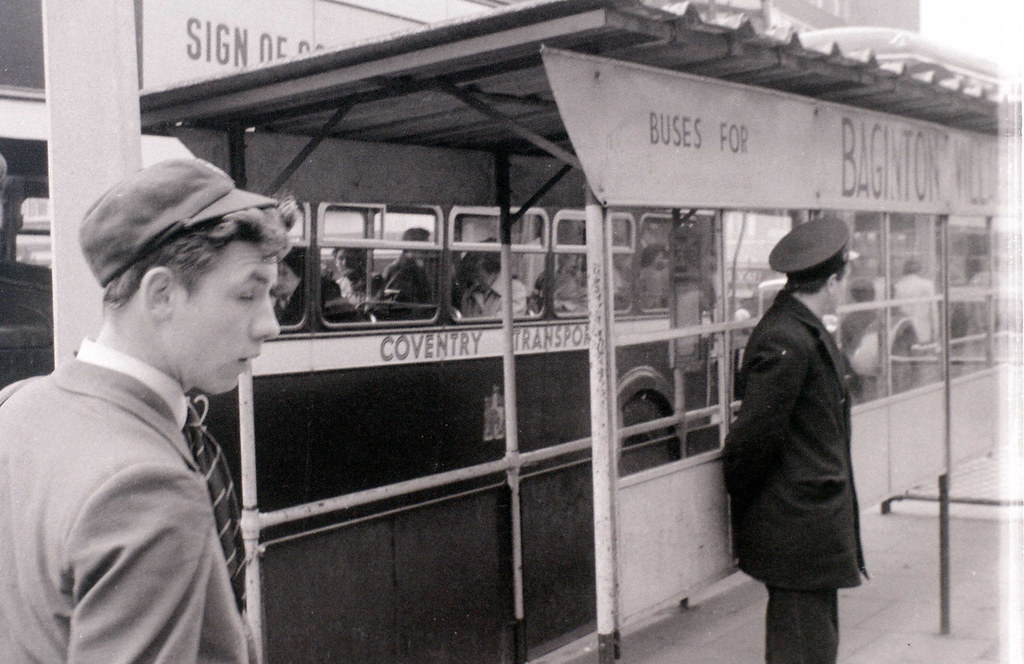
At Coventry bus depot: photo by allhails, 16 May 1955
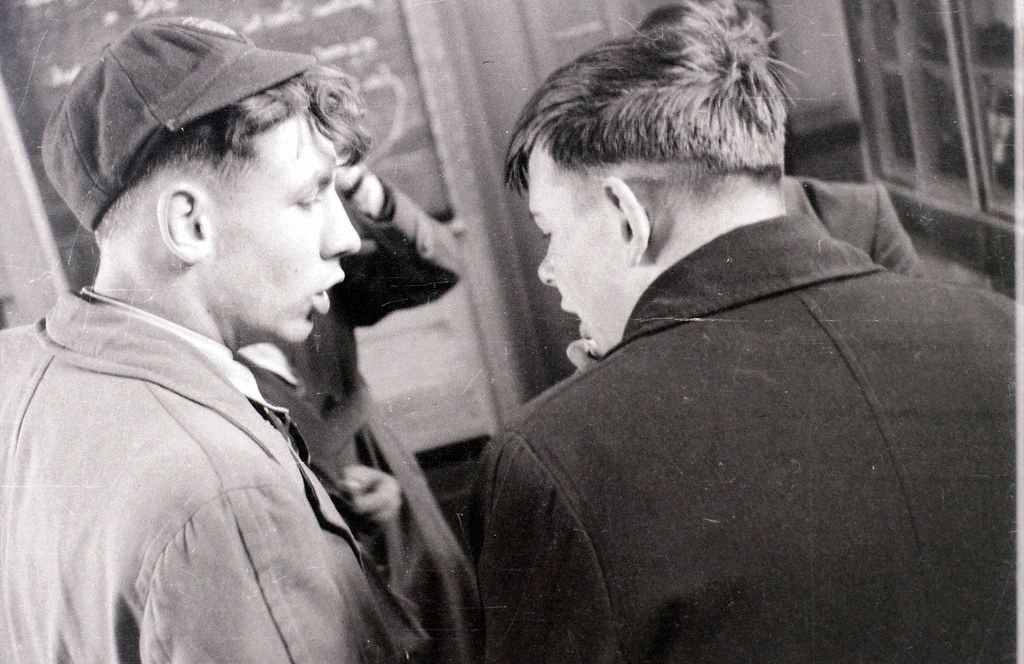
Bablake School, Coventry: Perkins and Weaver in a full and frank discussion: photo by allhails, 19 May 1955
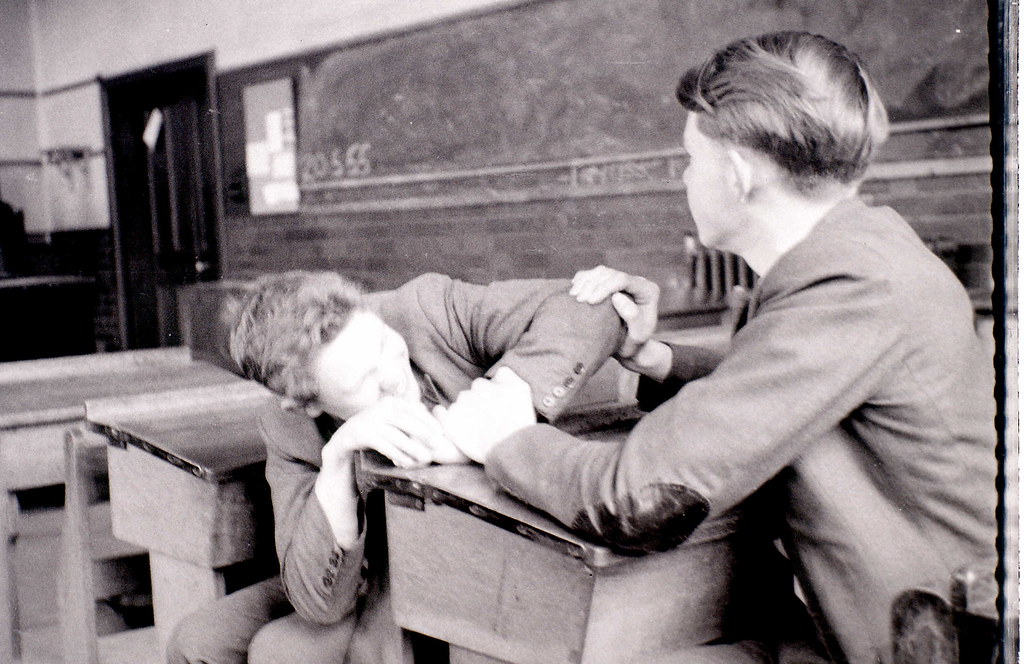
Larking about in class, Bablake School, Coventry: photo by allhails, 20 May 1955
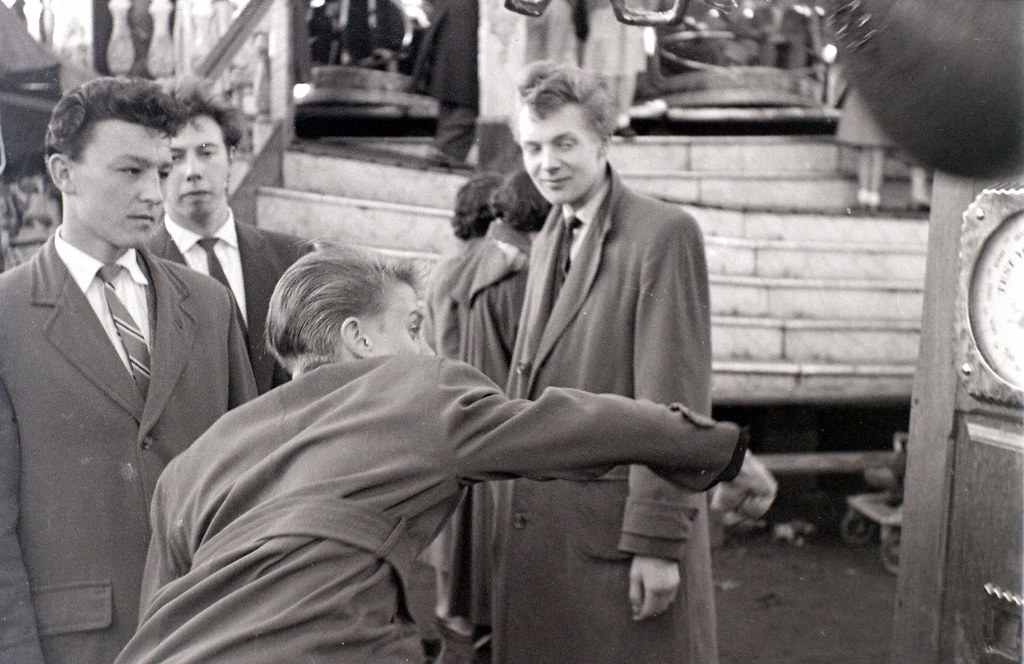
At Hearsall Common fairground, Coventry: photo by allhails, 30 May 1955
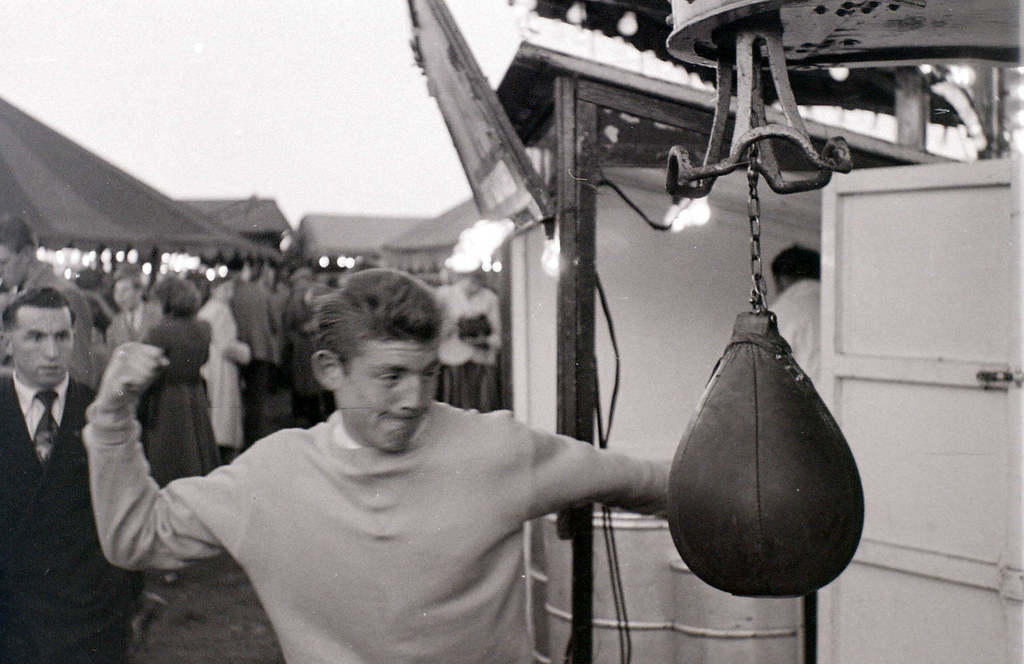
At Hearsall Common fairground, Coventry: photo by allhails, 30 May 1955
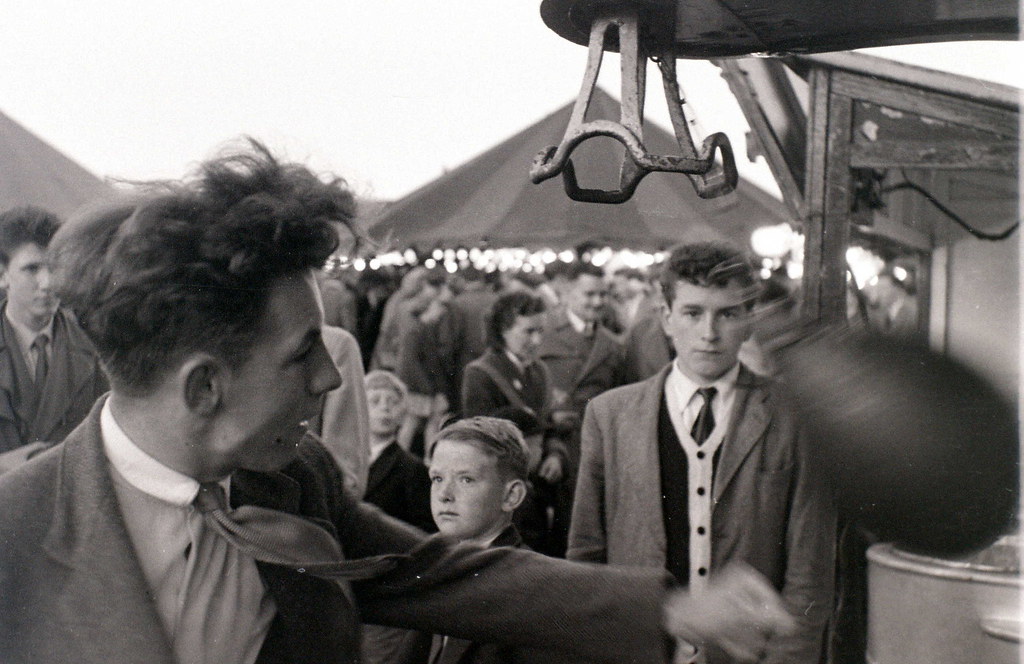
At the fair, Hearsall Common, Coventry: photo by allhails, 30 May 1955
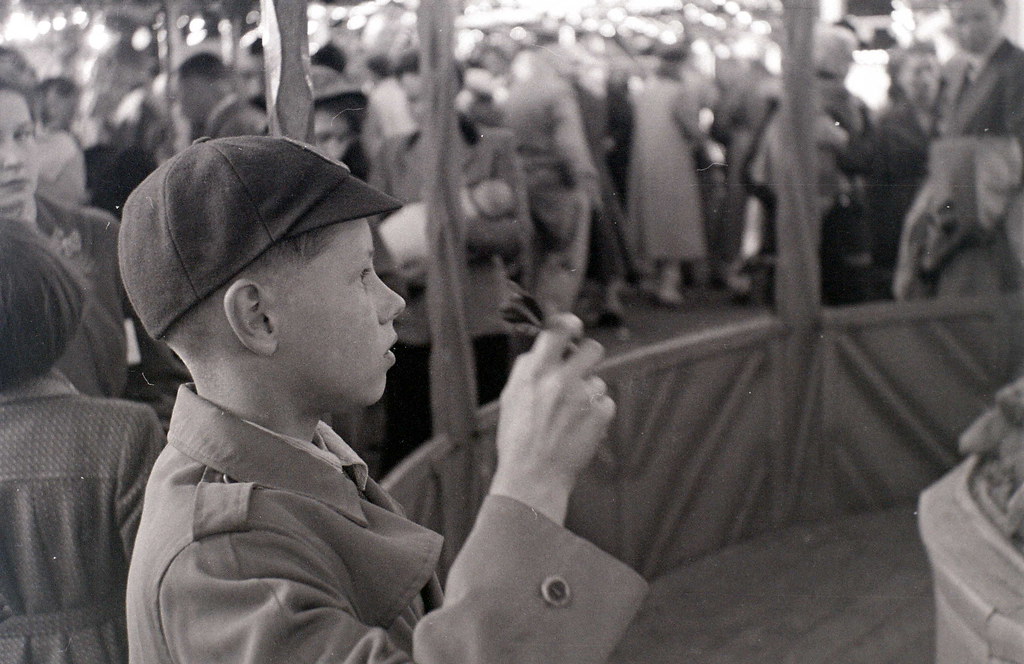
At Hearsall Common fair, Coventry: photo by allhails, 4 June 1955
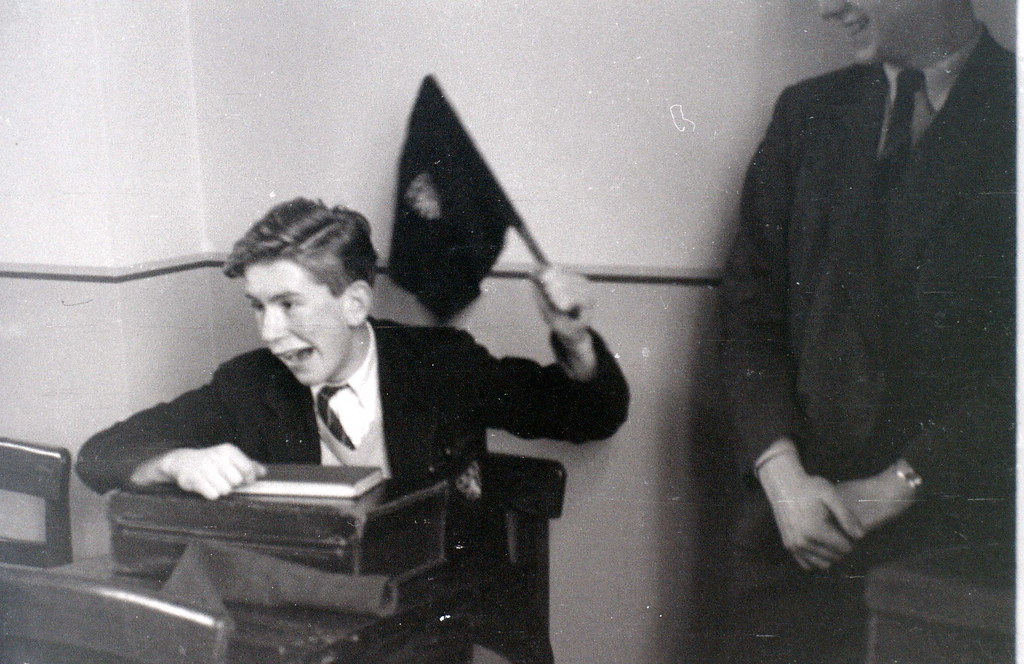
A quiet moment in Room 34, Bablake School, Coventry: photo by allhails, 17 December 1955
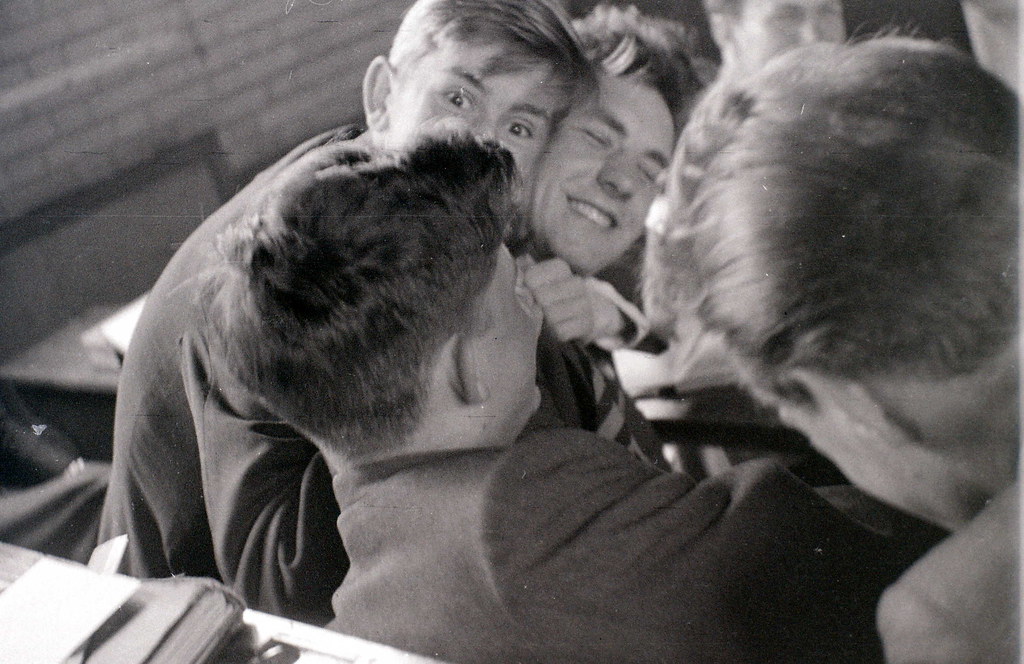
A quiet moment in class, Bablake School, Coventry: photo by allhails, c. July 1956

At Bablake School, Coventry. "Pip" Jones, one of the great characters in our school form: photo by allhails, c. July 1956
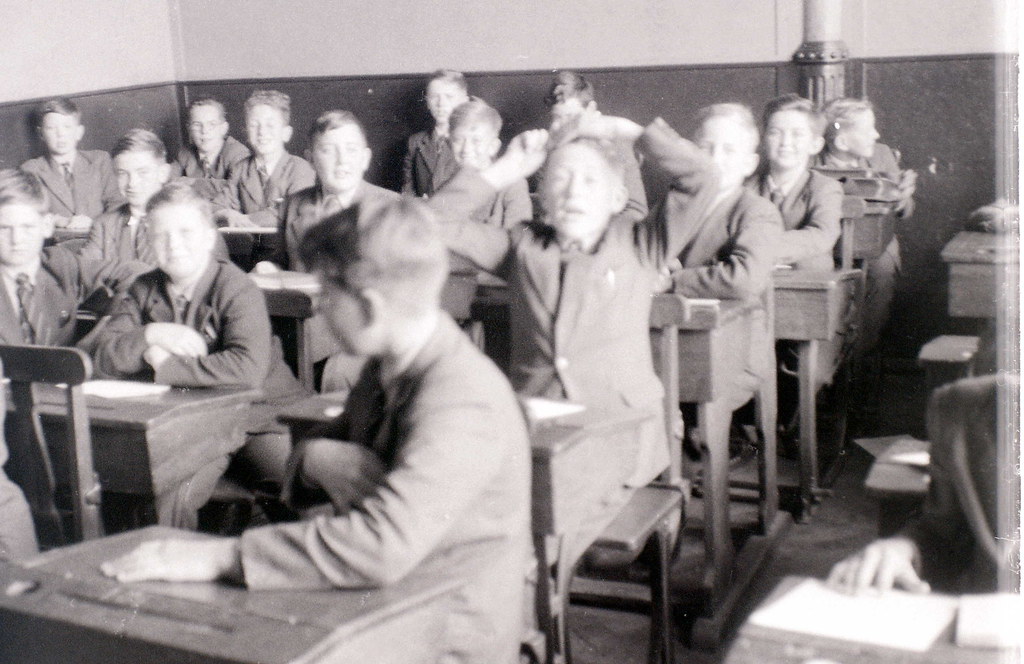
At Bablake School, Coventry: photo by allhails, mid-1957

At Bablake School, Coventry: photo by allhails, mid-1957

At Bablake School, Coventry: photo by allhails, mid-1957
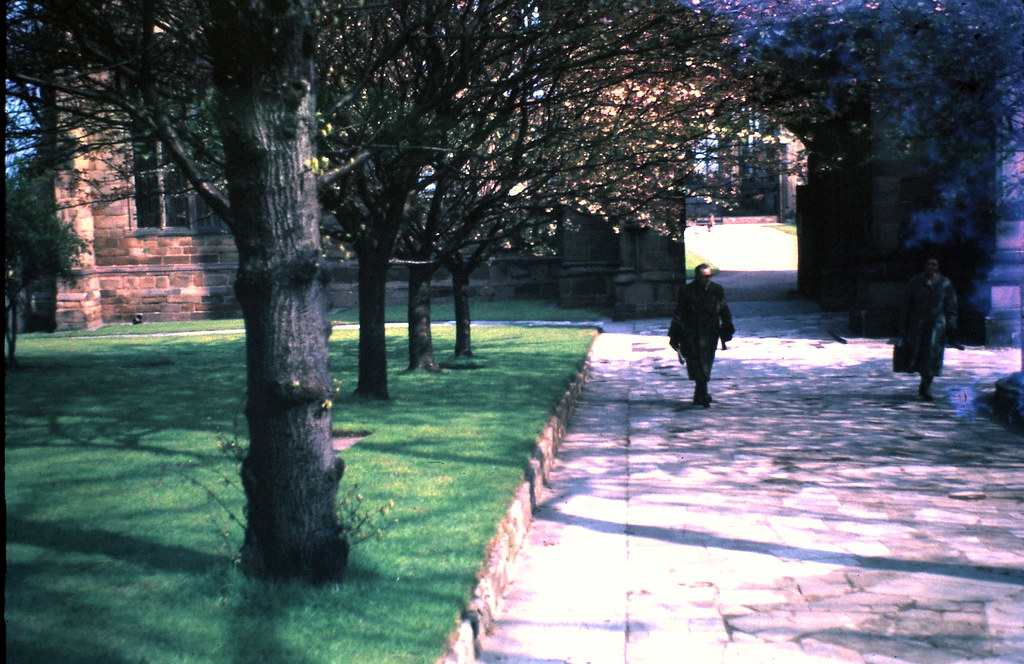
Coventry: photo by allhails, 13 April 1957
Under the wide and starry sky,.Dig the grave and let me lie.
Glad did I live and gladly die,
.And I laid me down with a will.
This be the verse you 'grave for me:
.Here he lies where he long'd to be;
Home is the sailor, home from sea,
.And the hunter home from the hill.
Robert Louis Stevenson (1850-1894): Requiem, 1880
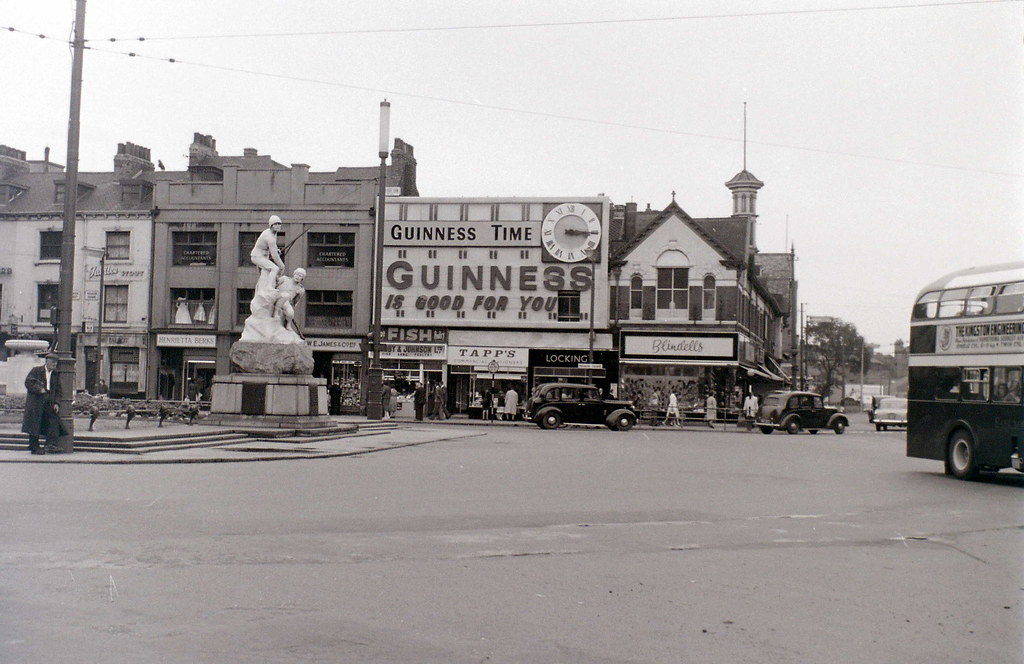
Hull: photo by allhails, c. 28 August 1960

Philip Larkin, 1956: photographer unknown; image by John Brown, 24 July 2012
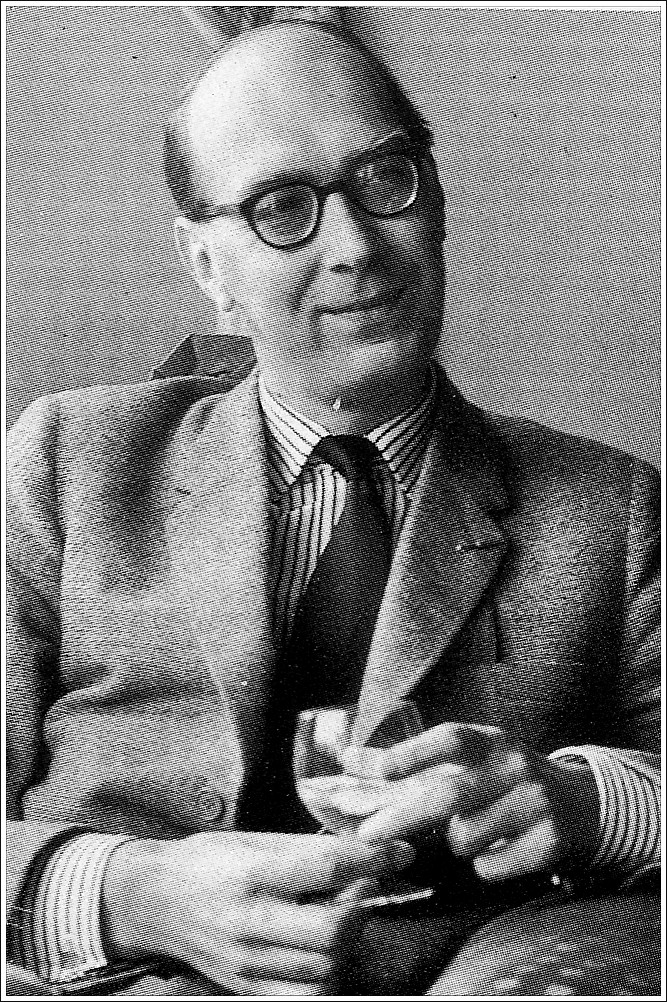
Philip Larkin with gin and tonic, c. 1961: photo by Rollie McKenna; image by Simon K, 23 September 2007

Harborview Trauma Center: photographer unknown, 1999 (Fleets and Facilities Department Imagebank Collection, Seattle Municipal Archives)



15 comments:
I love this poem. But I did go on to have kids myself.
Good to see PL with a glass of G&T to complement the Players you sent me yesterday.
Well it did seem the hunter home from the hill should be deserving of some small liquid reward.
Larkin is wonderfully candid. Freud believed that the ‘nuclear’ family is the origin of neurosis and sexual perversion. Add in religion’s sanction for the sexual mutilation of children, a hierarchical family structure, and the cruelty and child abuse disguised as punishment that comes with it, and you’ve got a potent vector for disease.
The Tonic
reliable, smooth
not like too many kids
at clown training school.
One appears to be reading.
A master in the art
of pretend.
They will soon be handsome
with great hair.
For now, search their faces
for the one
who might hang himself.
Smile at him, encouragingly.
The others have gone off
to hunt. Tell him it is alright
to go gathering, too, and come home
with nothing.
Their clothing appears disciplined
hyper against each other.
It will all appear different
after an Alka-Seltzer
a coupla aspirin. Put your feet
up, there. Start to turn things
upside down.
"Tell him it is alright
to go gathering, too, and come home
with nothing." A great tonic indeed, Susan.
In case anyone might be tempted to think the poet was just playing about here:
Philip Larkin reads This Be the Verse
The poem's caustic account of nuclear family structure and its effects may be unpleasant to consider, but then again it may in many cases be dead-on. Larkin's seems to be one of those cases. I think Hazen's comment fits here. Thus the candour. When one feels a poet is not lying, one is grateful.
Of course Larkin never visited California (the horror!), so my superimposition of that painfully happy (pinch me again, mom) family, at the top of the post, is merely an attempt to suggest that what Larkin says in his poem about a life spent in grim Coventry (early on) and grimmer Hull (later -- he was a librarian there) may be to at least some extent generalized to include life elsewhere.
The schoolboy who shot himself after an argument with his parents pretty much clinches the poem's case (as it were).
And as Larkin abhorred America and Americans and wouldn't have been caught dead there, it's obviously true also that he has never been inside the bloody quaking heart of an American Trauma Center (see bottom photo) -- but I have been there, and recently enough to have been assailed by thoughts of the extremity of remedy that is at times called for in the case of the products of American mums and dads. It might come as a surprise to hear that a large share of the lamentation that surrounds one in such places has family dysfunction as origin.
This Be My Verse
(for better or worse)
(on viewing the Coventry schoolkids):
Mischievous boys
in caps, jackets ... ties!!!
a half century past.
God, how time flies.
What's gone and what lasts -
old sorrows ... kept joys.
Okay that was pretty lame but - I had to wear a school uniform way back when, navy blue mostly. Am remembering scenes of little boys in wrinkled shirts and skinny ties wrestling in the schoolyard, a nun marching one of them gruffly, by the ear, to Detention. I even remember his name. Blast from the past, ha ha. Thanks, Tom
Thanks, Hazen.
"...fools in old-atyle hats and coats"
Such a comical get-up for the bearers of congenital misery!
To the Lying Poets
I like your cards
please keep them
wrapped up
in wool
and store them
with their friends
also there
barely alive
under the bandages
waiting to exact revenge
unto the unsuspecting masses.
"It deepens like a coastal shelf"
This is so sharp--also so devastatingly true. Drops off inside the poem, sloughs off the top part.
For the record, I had a safe and sound upbringing, relatively speaking. Even as a child I knew that my parents loved me, and my brother too. From time to time, the two of us remark on our good fortune. Still, I couldn’t wait to get out and get away. Even under the best of circumstances, none of us leaves completely unscathed. I figured I would take the measure of the world. I soon learned that the world could take a measure of me.
That marking of the slow, inexorable deepening of the wrong "like a coastal shelf" (which Susan points to) is surely crucial here. The image gives a seriousness and inevitability to a world view that up to that point may appear merely the dyspeptic melancholy of someone who feels he has failed at life -- or, worse, that life has failed him. But geology is what it is; failure and success don't enter into it.
Annie, the 50s school uniforms brought back memories for us as well.
For Angelica, who attended school in the Commonwealth, the dress rules were: winter, a grey wool tunic with a white blouse; summer, a pale green cotton tunic; with hats and gloves compulsory in both seasons (straw hat in summer, beret in winter).
As for me, in parochial schools in Chicago, dress codes were precise and vigorously enforced -- in retrospect, probably a good idea, given this was otherwise (or even anyway) a pack of scruffy ragamuffins. Each school had its codes. At high school (boys only, presided over by Dominicans), ties were compulsory, together with either a proper jacket or a sweater. Of course, the general endeavour was to skirt these (and all other) rules. In consequence, the majority of boys kept a tatty old tie and a single rancid, stinking sweater in a locker, to be donned upon arrival in the morning and left in the locker at the end of the day. The lockers were cleared only once a year, after Spring term. By springtime it would have been possible for a blind, deaf monitor to detect the opening of a locker door anywhere up and down the labyrinthine subterranean locker corridors, relying solely on olfactory evidence.
"... I couldn’t wait to get out and get away. Even under the best of circumstances, none of us leaves completely unscathed. I figured I would take the measure of the world. I soon learned that the world could take a measure of me."
Hazen, I hear you.
WB, about the old-style hats and coats, we do see those hats and coats adorning the central figure of repressive authority in the photos here -- the dread headmaster. Is it too much to hope that it is his shoes which are being fiddled-with under the table by the class clown?
Post a Comment